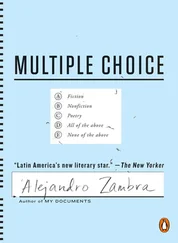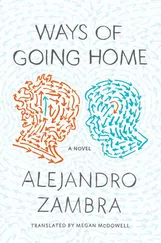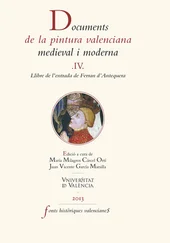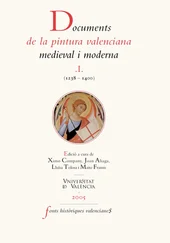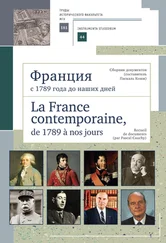It’s nighttime, it’s always nighttime when the text comes to an end. I re-read, rephrase sentences, specify names. I try to remember better: more, and better. I cut and paste, change and enlarge the font, play with line spacing. I think about closing this file and leaving it forever in the My Documents folder. But I’m going to publish it, I want to, even though it’s not finished, even though it’s impossible to finish it.
My father was a computer, my mother a typewriter.
I was a blank page, and now I am a book.
“I’m Camilo!” he shouted to me from the gate, opening his arms wide, as if we knew each other. “Your daddy’s godson.” It seemed terribly suspicious to me, like a caricature of danger, and I was nine then, already too big to fall for a trap like that. Those dark glasses, like a blind man’s, and on such a cloudy day. And that jean jacket, covered in sewn-on patches with the names of rock bands. “My dad’s not here,” I told him, closing the door, and I didn’t even give my father the message. I forgot.
But it turned out to be true: my father had been a close friend of Camilo’s father, Big Camilo — they’d played soccer together on the Renca team. We had photographs of the baptism, the baby crying and the adults looking solemnly into the camera. All was well for several years — my father was an engaged godfather, and he took an interest in the child — but he and Big Camilo had a fight, and later, some months after the coup, Big Camilo was imprisoned, and after he was released he went into exile. The plan was for his wife, July, to bring Little Camilo and meet up with him in Paris, but she didn’t want to, and the marriage ended. So Little Camilo grew up missing his father, waiting for him, saving up money to go visit him. And one day, just after he turned eighteen, he decided that if he couldn’t see his father, he should at least find his godfather.
I learned all this over tea the first time Camilo came to have onces with us, or maybe I found it out gradually. I want to be clear here, and I’m getting mixed up. But I remember how moved my father was that afternoon when he saw how much his godson looked like his old friend. “You have the same face,” he told him, which was not necessarily a compliment, because it was an unremarkable face, difficult to remember, and though Camilo used many products to style his stiff hair fashionably, it had a tendency to play dirty tricks on him.
Despite my initial distrust, Camilo soon became a benevolent and protective presence for me, luminous, a real older brother. When he set off for France to fulfill his lifelong dream, that’s how it felt: like my brother was leaving. This was in January of 1991. I know that for certain.
I wasn’t the only one who was fascinated by Camilo. My older sister was completely infatuated, and my younger sister, who usually couldn’t keep her attention on anything for more than two seconds, would watch him intently when he came to visit, celebrating every one of his wisecracks. Not to mention my mom, whom he joked around with but also spoke to seriously, because during that time Camilo was — in his own words—“full of religious tension,” and although my mother was no saint, she was so astounded by the idea that a person could deny the existence of God that she’d sit and listen to him in awe.
As for my father, I think that, for him, Camilo became more of a companion or friend than a godson; he even let Camilo address him with the informal tú . They would sit up late in the living room, talking about all kinds of things — except about the existence of God, because my father didn’t allow such things to be questioned, or about soccer, because Camilo was the first man I met who didn’t like soccer. It seemed so funny to me, so exotic: he didn’t even understand the rules. The only match he’d ever played took place in the San Miguel gym, when he was five years old: his knowledge of the game back then came from the replays he’d seen on TV, so he spent the whole afternoon running every which way, cheering for goals that hadn’t happened and waving happily to the crowd, utterly uninterested in the ball.
My own relationship with my father, however, was closely tied to soccer. We watched or listened to games, sometimes we went to the stadium together, and every Sunday at noon I went with him to a field in La Farfana, where he played goalie. He was really good — I remember him suspended in the air, grabbing hold of the ball with both hands and clutching it to his chest. Still, I always suspected that his teammates hated him, because he was the kind of goalie who spent the whole game barking instructions, ordering around the defense and even the midfield players at the top of his lungs. “Pass it back, man, pass it back! Here! Pass it back, man, back!” How many times did I hear my father call that out in a tone of utmost alarm? When he yelled at me — if he ever did — it was never as loud as those shrieks on the soccer field. His teammates endured them with annoyance, or at least that’s what I assumed, since trying to play with that nonstop commotion in the background can’t have been pleasant. But he was respected, my father. And he was really good, I’ll say it again. I would settle in behind the goal with my Bilz or my Chocolito, and sometimes he would glance at me quickly to be sure I was still there, and other times he would ask me, without turning around, what had happened, because that was my father’s main problem as a goalie, the reason he never went pro: his myopia was so severe that he could see only as far as the midfield. His reflexes, however, were extraordinary, as was his bravery, which he paid for with two fractures in his right hand and one in his left.
During halftime I liked to go and stand in the goalie’s spot, and invariably I’d think about how immense the goal was. Over and over, I wondered how anyone could possibly block a penalty kick. My father blocked penalty kicks — of course he did. One out of every three or four: he never dived for them early; he always waited, and if the kicker’s execution was anything less than perfect, he attacked the ball.
***
I remember a trip to the country when Camilo discovered I blinked between streetlights. I still do it, even when I’m driving; I can’t help it. As soon as I get on the highway, I start blinking carefully, trying to hit the exact midpoint between streetlights. That day, my sisters, Camilo, and I were crowded into the backseat of my parents’ Chevette, and Camilo noticed that I was tense, concentrating, and then he started to blink at the same time that I did, smiling at me. I got worried, because I didn’t want to make any mistakes; I fervently believed that only if I blinked between streetlights would we all be kept safe.
My nervous habits don’t bother me so much now, but when I was a kid they used to make me so anxious that even the simplest activities became unbearable. I guess I was partly or completely OCD. Like many children, I scrupulously avoided the cracks in the sidewalk. If I ever accidentally stepped on one I fell into a state of unspeakable despair — and yet I knew, on some level, that it was all too ridiculous to talk about. I also had an obsession with balancing out parts of my body: if one leg hurt, I’d hit the other one to make them even. Sometimes I’d move my right shoulder to the rhythm of my heartbeats, as if I had two hearts. I had some truly random routines as well, like going nine times up and down the steep staircase that led from the pool to the park. This wasn’t really so strange — it could have been a kind of game — but I managed to keep it from being one by hiding it carefully: I’d stop at the bottom step, shake my head as if I’d forgotten something, and then turn around and retrace my steps.
Читать дальше

